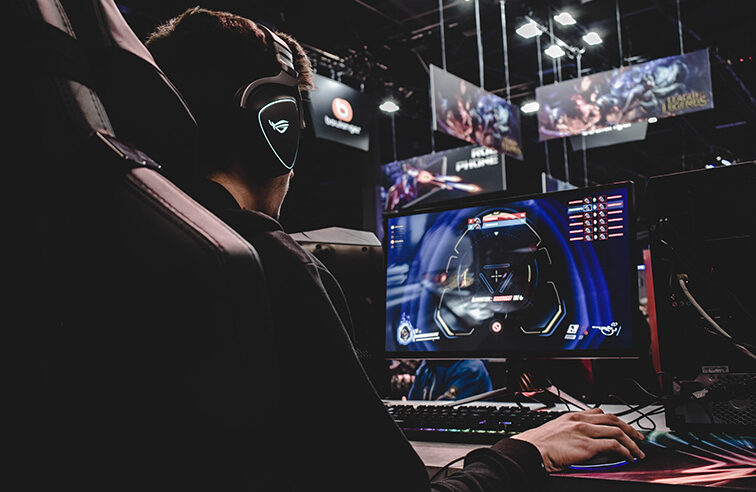The gaming industry has come a long way since its inception in the early 1950s. From research labs to homes worldwide, video games have grown in popularity and have become a major source of entertainment for people of all ages. The industry has experienced significant growth in recent years, thanks to the mobile technology boom, which has opened the doors to a new generation of gamers. The video game industry has always been about innovation, and new technology, controls, and experiences are to be expected. As a result, the gaming industry is tipped to maintain its recent rapid growth and could be worth $321 billion by 2026.
The current state of the gaming industry is characterized by several trends and developments. One of the latest trends is the increasing diversity in games, with more games featuring characters from different backgrounds and cultures. Another trend is the growth of cloud gaming services, which allow gamers to play games on-demand without the need for a console or powerful computer. Additionally, new PC gaming platforms are challenging the dominance of Steam, the leading PC gaming platform. With the release of widely popular video games and next-generation consoles, the gaming industry is set to catapult into 2023 with new gaming trends, developments, and advancing technologies.
The gaming industry is constantly evolving, and the latest releases and trends are a testament to that. Games development and release trends have been affected by the pandemic, with many companies delaying their major title releases from 2022 to 2023. However, the gaming market is poised to grow at a CAGR of 8.94% by 2028, thanks to the rising adoption of smartphones and the advent of high bandwidth network connectivity. As we move forward, the gaming industry will continue to innovate and provide new and exciting experiences for gamers around the world.
Popular genres in modern gaming
Action and adventure games are one of the most popular genres in modern gaming. These games typically involve fast-paced gameplay, thrilling combat, and immersive storytelling. With the rise of online gaming, many action and adventure games now offer multiplayer modes, allowing players to compete or cooperate with friends and other players from around the world. Some notable examples of popular action and adventure games include Grand Theft Auto V, Assassin’s Creed Valhalla, and The Legend of Zelda: Breath of the Wild.

Role-playing games (RPGs) are another popular genre in modern gaming. These games typically involve creating and developing a character, exploring a vast open world, and completing quests and missions. RPGs often feature complex storylines, allowing players to make choices that affect the outcome of the game. Some popular examples of RPGs include The Elder Scrolls V: Skyrim, Fallout 4, and World of Warcraft.
Sports and racing games are also popular genres in modern gaming. These games allow players to compete in a variety of sports, such as football, basketball, and soccer, or race in high-speed vehicles like cars and motorcycles. Many sports and racing games now offer online multiplayer modes, allowing players to compete against each other from around the world. Some popular sports and racing games include FIFA 22, NBA 2K22, and Forza Horizon 5.
Emerging trends in modern gaming
One of the emerging trends in modern gaming is the use of virtual and augmented reality technology. Virtual and augmented reality have become synonymous with gaming, and their potential for use in other industries is being explored. The demand for more immersive AR games is increasing, with almost 4 out of 10 AR gamers agreeing that AR gaming will be more interesting with better and more immersive games and access to lower-cost AR glasses. VR video games like Beat Saber, Half-Life: Alyx, and Superhot VR have attracted enthusiasts and increased the popularity of virtual reality gaming. As the technology continues to improve, we can expect to see more innovative uses of virtual and augmented reality in gaming.
Another emerging trend in modern gaming is mobile gaming. The online mobile gaming industry has seen significant growth in recent years, with mobile gaming generating nearly $80 billion in 2020. In 2022, the mobile gaming segment saw declines as gamers moved from casual to more complex hybrid-casual titles. However, the mobile gaming market is expected to continue growing in the coming years, with the video game market projected to hit USD 583.69 billion by 2023. As mobile technology continues to advance, we can expect to see more sophisticated and immersive mobile games.
Esports and competitive gaming have also become a significant trend in modern gaming. Esports has evolved into a massive industry, with professional teams, leagues, and tournaments around the world. The growth of esports as a genuine competition to traditional sports has been a significant development in the gaming industry. However, some experts are questioning whether the industry still has a bright future. As the popularity of esports continues to grow, we can expect to see more investment in the industry and more opportunities for gamers to compete at a professional level.
Impact of modern gaming on society
Modern gaming has been found to have positive effects on mental health and cognitive development. A study sponsored by the National Institutes of Health found that video gaming may be associated with small but improved cognitive abilities involving response inhibition and processing speed. In addition, a poll conducted among gamers revealed that over 40% believed that gaming improves emotional well-being. These findings suggest that gaming can have a positive impact on mental health and cognitive development.

However, modern gaming has also been associated with negative effects on social behavior and addiction. A study conducted in 2019 found a medium-sized negative correlation between problematic video gaming and psychological functioning. Video game addiction can lead to difficulty paying attention and controlling impulses, poor academic performance, and decreased social skills. Furthermore, distraction-motivated gaming has been linked to lower self-esteem and more negative affectivity. It is important to recognize the potential negative effects of gaming and take steps to prevent addiction and promote healthy social behavior.
The future of the gaming industry is bright, with rapid growth and new trends emerging. The industry is projected to be worth $321 billion by 2026. Cloud gaming, digital distribution, and free-to-play business models are among the trends transforming the industry. As the social benefits of gaming become more apparent, the industry is expected to continue to grow and have a significant impact on society. It is important to recognize both the positive and negative effects of modern gaming and take steps to promote healthy gaming habits.










